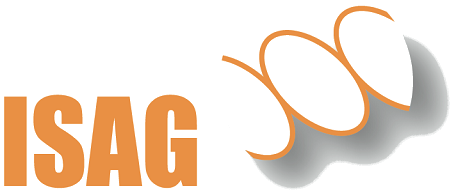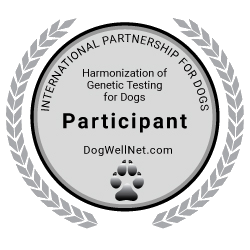Ivermectin hypersensitivity (MDR1 gene defect)*
Disease
Avermectins are a class of natural products with broad antiparasitic activity. Ivermectin, a prominent member of the avermectin family, is a drug that is used extensively in veterinary medicine to treat infections caused by nematode and arthropod parasites. Although ivermectin is generally safe for use in domestic animals, in the 1980s a number of clinical cases with neurological manifestation have been reported after ivermectin treatment. Neurotoxic symptoms include mydriasis, tremors, ataxia and anorexia. These symptoms occur at doses that are 1/200th of the dose required to cause toxicity in other dogs. Neurological manifestations of ivermectin in susceptible dogs also include hypersalivation, blindness, coma respiratory compromise and death.
Breed
Australian Shepherd, Bobtail, Border Collie, German Shepherd, Long- / Shorthair Collie, Longhaired Whippet, McNab, Shetland Sheepdog, Silken Windhound, White Shepherd
Trait of inheritance
Gen-defect and list of substrates
The multidrug-transporter MDR1 is part of the blood-brain barrier and responsible for limiting the brain penetration of a range of compounds of different therapeutic classes. Ivermectin sensitive dogs exhibit a 4 bp deletion mutation of the mdr1 gene that results in a frame shift, generating several stop codons that prematurely terminate synthesis of the multidrug-resistance transporter MDR1. Dogs that are homozygous for the mutation display the ivermectin sensitive phenotype due to a non-functional transporter. They can show enhanced absorption of ivermectin and other substrates e.g. Digoxin, Vincristine, Doxorubicin, Cyclosporin A, Grepafloxacin, Dexamethasone and Loperamide.
The table below litst three substance classes: class A includes substances that have been proven to pass the blood-brain barrier in animals with defect transporter. Class B lists substances which show interactions inanimal tests and should be given only under close control of a veterinarian, whereas class C indicates substances that can be given without problems even to dogs with defect transporter.
| Class A | Do not use in dogs with defect transporter | Ivermectine substances (Diapec®, Ecomectin®, Equimax®, Eqvalan®, Ivomec®, Noromectin®, Paramectin®, Qualimec®, Sumex®, Virbamec®) Doramectine substances (Dectomax®) Moxidectine substances (Cydectin®, Equest®) Loperamide substances (Imodium®) |
| Class B | An interaction has been shown; use only under close control of veterinarian | Cytostatics (Vinblastine, Doxorubicine, Paclitaxel, Docetaxel, Methotrexat, Vincristine) Immunosuppressives (Cyclosporine A) Heart glycosides (Digoxine, Methyldigoxine) Opioids (Morphium) Antiarrhythmics (Verapamil, Diltiazem, Chinidine) Antiemetics (Ondansetron, Domperidon) Antibiotics (Sparfloxacin, Grepafloxacin) Antihistamin (Ebastin) Glucocorticoid (Dexamethason) |
| Class C | Can be used in the permitted application form and dose! | Stronghold®, Advocate® and Milbemax® |
Test duration
1-2 weeks after arrival of the sample in the lab
Material
The DNA test is performed out of EDTA blood or buccal swabs. Required swabs can be ordered free of charge. (Buccal swab order-form). If a swab is sent in, possibly the genetic material is not sufficient to run the test. In this case it would be best to send in an EDTA blood sample.
Testing procedure
Please send in your sample together with the lab order genetic. Results will be transmitted optionally via post, fax or email. After completion of the test you will receive a separate invoice. Payment can be made via credit card or bank transfer.
Breeding club discounts apply if a copy of the membership card is sent together with the respective samples. Due to administrative reasons the invoiced price can not be altered subsequently.
Questiones?
Please contact our molecular biology team for further questions.
LABOKLIN GmbH und Co.KG
Steubenstraße 4
D-97688 Bad Kissingen
Telefon: +49 (0)971 72020
Fax: +49 (0)971 68546
E-Mail: info@labogen.com
Links
*) Partnerlaboratory


